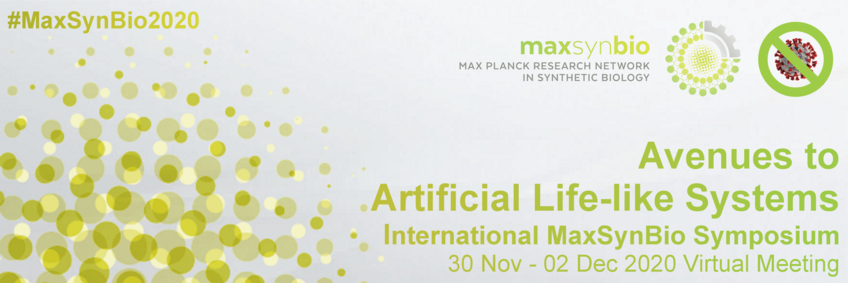
#18 - Silica Nanocapsules as Sub-Compartments in Protocells
Lucas Caire da Silva (Max Planck Institute for Polymer Research, Mainz)
Tuesday, 01 Dec 21:15 - 22:00 CET
Access to the BigBlueButton rooom for this Mini Talk via the lists for Monday and Tuesday.
Please make yourself familiar with BigBlueButton before you join the Mini Talk - read the instructions.
Abstract
Title: Silica Nanocapsules as Sub-Compartments in Protocells
Author(s): Shuai Jianga, Lucas Caire da Silvaa, Tsvetomir Ivanova and Katharina Landfestera
Affiliations: aMax Planck Institute for Polymer Research, Mainz
Abstract: Cellular compartments are membrane enclosed regions in cells that allow the organization and regulation of biochemical processes that are not compatible to each other. Compartmentalization is replicated in protocells for similar reasons, i.e., to create complex integrated bioreactors. Sub-compartments are found in protocells with a vesicle-in-vesicle architecture, where small sub-compartments obtained from liposomes or polymersomes are encapsulated in a larger compartment. These types of sub-compartments, however, are limited by their intrinsic low permeability (polymersomes) or their low colloidal stability (liposomes). Here, we introduce porous silica nanocapsules as an alternative for sub-compartments in protocells. In contrast to polymersomes and liposomes, porous silica nanocapsules offer a tunable permeability and excellent colloidal stability. Additionally, the hollow structure of the silica nanocapsules allows biomolecules, such as enzymes, to be efficiently encapsulated. As a result, the nanocapsules can be programmed to perform different tasks through the encapsulation of different active components. In our talk, we describe a protocell design that can perform a 2-enzyme cascade reaction that is controlled by enzymes encapsulated in well-defined, robust and permeable silica sub-compartments.